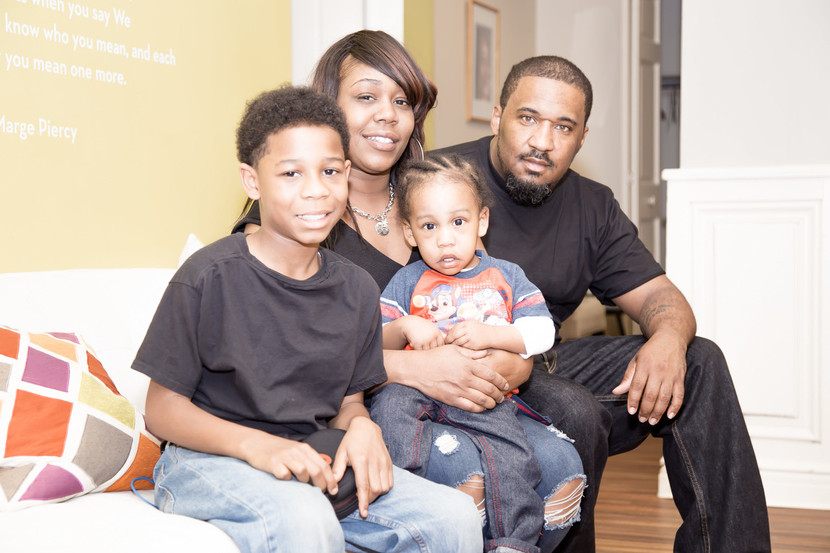POISE Foundation Supports Black Community in Becoming More Self-Sufficient, Self-Sustaining
- Hilary Daninhirsch
- Feb 1, 2021
- 5 min read
The POISE Foundation is the oldest existing Black public/community foundation in the country and by far the largest. The nonprofit was begun in 1980 by Bernard Jones, an African American community leader, with $170,000, and 40 years later, the foundation manages approximately 200 individual funds and makes hundreds of grants annually to Black-led organizations. It also provides thousands of dollars in scholarship money to predominantly Black students. We spoke with the president and CEO, Mark S. Lewis, about how POISE serves as a philanthropic leader for Pittsburgh’s Black community.
North Hills Monthly (NHM): What is the mission of the POISE Foundation?
Mark S. Lewis (Lewis): The POISE Foundation is really focused on the African American community in Pittsburgh, and our primary mission is to help this community become more self-sufficient and develop self-sustaining practices. We just recently moved ‘Pittsburgh’ out of our mission statement because of the growing number of funds started by people across the country as well as several grants that go to organizations across the country.
NHM: How does it work?
Lewis: We focus on four primary areas---Collective Giving, Grantmaking, Leadership and Advocacy. We believe the Black community as a whole has resources that, if collectively harnessed, could lead to substantial change. POISE is a collector and grower of assets through individuals and organizations creating funds in the foundation.
Our grantmaking uses the collective assets to reinvest in our community in areas such as health, economic development, arts and culture, education and neighborhood development.
For the last several years, unrestricted grants have focused on strengthening Black families. We have funded nonprofits to focus their work through a family lens versus solely serving individuals in a family. Our theory is that in order to make real, sustainable improvements in our community, we must focus on strengthening the family unit itself. We don’t see a lot of organizations doing their work through a family lens.
Scholarships are a growing part of our grantmaking. We support families from Pre-K through post-secondary. The Pre-K through 12th grade scholarships are for private school tuition. We also fund families in low performing schools/districts that wish to transfer their children to other schools in different districts where a fee is involved, if those families are looking to have an alternative to public education. We’ve given away about $3 million over the years, and on average, support 150 families per year.
We also have about 60 scholarships for post-secondary education, and every one of those funds has different eligibility criteria.
NHM: How are you involved in leadership and advocacy?
Lewis: We advise on various initiatives, as well as act as a fiscal sponsor for approximately 20 organizations and programs. We advocate for strengthening Black families, and advocate for building a strong Black business ecosystem, and lead an effort to create a sustainable Black community in our region.
NHM: Your website highlights the Human Equity & Justice Fund and the Critical Community Needs Fund (CCNF)—can you elaborate on those?
Lewis: We established the CCNF in response to the COVID pandemic—once the pandemic began to take hold, we talked to colleagues from larger foundations and began comparing grantee lists. The larger foundations primarily fund larger organizations, so we saw a gap, particularly in the Black community, and created the fund with the goal to look at small to midsized Black-led organizations with budgets under $600,000 focused on the Black community. Many of these organizations weren’t on the radar of the larger foundations, but are integral to their communities. Originally, we had a goal of raising $500,000 for that fund; to date it has raised $1.2 million and we have given $1 million in grants.
The Human Equity and Justice Fund was actually a fund that we created back in 2018 as a result of the social unrest that occurred with the Antwon Rose incident. What we saw was a lot of reactions, activists and responses taking place that were organic, so we created the fund to quickly support movements in response to local social activism, to provide supplies and things they’d need as they quickly organized. We gave a couple of grants away, and with the George Floyd unrest, we saw a need to relaunch and grow this fund.
NHM: Who is eligible to access or apply for money from these funds?
Lewis: We are focused on small- and medium-sized Black-led organizations that predominantly serve the Black community and are not on the radar of the larger foundations. We do a lot of evaluation to make sure these organizations are beneficial to the community. This year we’ve made about 275 grants and scholarships.
NHM: What motivates a donor to establish or donate to a POISE fund?
Lewis: Most corporate donors are focused on education tax credit programs, though some will sponsor the organization or support programmatic activities that we do.
I think for most individual donors, there are a few reasons. One is that people are looking at how best to support their community, and often they may not have a particular organization in mind, so they look to the POISE Foundation because of our knowledge of nonprofits and our connection to the community. Some may also want to establish a legacy in their name or a loved one’s name, so they create a fund that lasts forever. And there is always the tax deductibility of their gift.
NHM: Approximately how much money does POISE receive in donations each year?
Lewis: That varies a lot. On average, annual contributions/revenues are around $3 million, but this past year was extraordinarily unique for us: we raised $6 million.
NHM: In your estimation, how is the POISE Foundation an asset to the Black community and to the general Pittsburgh community?
Lewis: We are one of only three Black community foundations in the country, which makes us a very unique asset in the Pittsburgh community. Beyond our grantmaking ability, we are one of only a few Black-led financial assets in Pittsburgh. POISE represents long-term sustainability and control.
Reports have shown that young people, regardless of race, are looking for more diverse communities. If Pittsburgh doesn’t figure out how to diversity itself in a much greater way, it will be hard for us to continue to be a leading city. We’ve got some work to do here in Pittsburgh.
POISE is a model of the success that Black-led organizations can have when we engage our collective assets and engage in leadership and advocacy work; we need to build a strong and diverse community and need to invest in Black businesses in Pittsburgh.
NHM: What does the future look like for POISE?
Lewis: We are looking to significantly grow the foundation. It’s our 40th anniversary this year, so we’re looking to create more funds, attract new donors, and really market the foundation to let people know who we are, the asset we have been and the asset we can be for our community and the Pittsburgh region. Collectively, we can generate wealth and power to reinvest in our community, which benefits not only the Black community but the Pittsburgh region as well.






























Comments